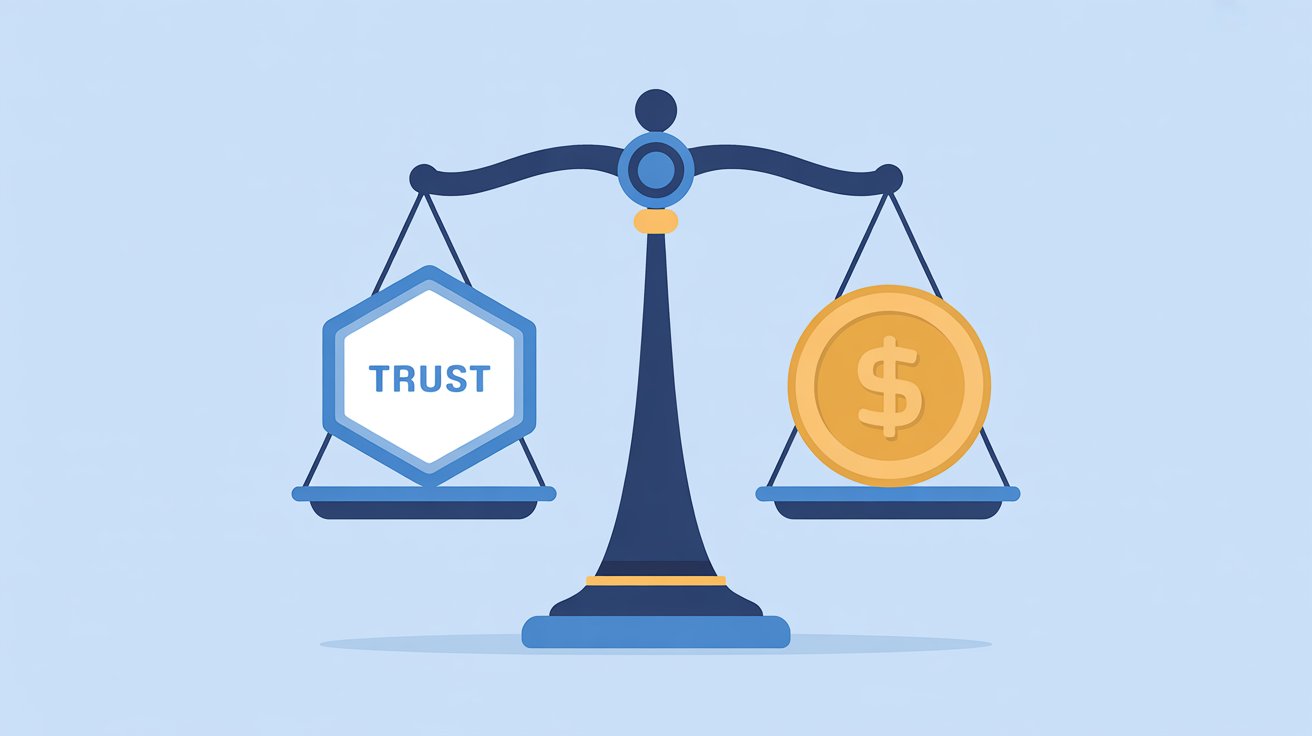
May 22, 2025
Trust Decay: How Overusing Review Incentives Harms Platform Credibility
In today’s digital ecosystem, many platforms incentivize users to leave reviews—offering points, badges, discounts, or even monetary rewards. While the goal is to boost participation, these well-meaning strategies often have unintended consequences. Over time, excessive incentivization can lead to what we call "trust decay"—a slow erosion of user confidence in the authenticity of the platform's reviews.
As platforms like Wyrloop focus on maintaining credible feedback systems, it’s essential to recognize when incentives cross the line from motivational to manipulative.
🎯 Why Do Platforms Use Review Incentives?
Psychologically, incentives are powerful. People are more likely to take action when they’re offered something in return. This taps into intrinsic and extrinsic motivators: recognition, reward, and a sense of accomplishment. But when the review becomes about earning something rather than sharing genuine experience, the integrity of the platform is compromised.
🚨 What Is Trust Decay?
Trust decay occurs when users begin to question the legitimacy of the content they see. If every review is glowing, overly positive, or reads like a marketing pitch, it raises red flags. Over-incentivizing reviews can result in:
- Low-quality, rushed, or vague content
- Fake or copy-pasted feedback
- Bias toward positive ratings due to reward triggers
- A perception that reviews are “bought,” not earned
Eventually, users lose faith in the review system, and the very thing the platform depends on—authentic input—is undermined.
🧠 The Psychological Shift: From Value to Reward
When a user writes a review purely to receive a discount or perk, their focus shifts. Instead of providing thoughtful, experience-based insights, they may write just enough to qualify for the reward. This leads to several behavioral trends:
- Reviews lacking detail or substance
- Inflated ratings to guarantee rewards
- Strategic language designed to “game the system”
- Reduced emotional investment in the platform community
Over time, this reshapes the platform from a space of shared experiences to one driven by transactional behavior.
⚠️ Real-World Cases Where Incentives Backfired
In the e-commerce world, it’s common to see sellers offer free products in exchange for 5-star reviews. In mobile app stores, developers may reward users with in-game currency for leaving feedback. Hospitality platforms may encourage guests to write positive reviews in exchange for upgrades or discounts.
While these practices can provide a short-term surge in review volume, they often result in long-term skepticism. When users experience a mismatch between glowing reviews and actual performance, they’re less likely to trust the platform in the future.
✅ How to Ethically Balance Incentives and Integrity
Not all incentives are bad. When applied thoughtfully and transparently, they can encourage high-quality contributions. Here are strategies platforms can adopt to avoid trust decay:
1. Be Transparent About Incentivization
Clearly label which reviews were incentivized. Let users filter them if they choose. Transparency builds confidence and sets realistic expectations.
2. Reward Quality, Not Quantity
Design systems that reward depth, insight, and usefulness. Avoid blanket rewards for simple ratings. Platforms can utilize AI to flag high-effort reviews and prioritize them for recognition.
3. Limit Incentive Frequency
Prevent users from abusing the system by capping how often reviews can earn rewards. Make sure incentives don’t become a constant prompt for low-value feedback.
4. Highlight Community Recognition
Shift the reward model from material benefits to social credibility. Highlight trusted reviewers, top contributors, or community-verified insights. Recognition often motivates better than rewards.
5. Monitor and Flag Suspicious Patterns
Implement moderation tools to detect duplicate content, suspicious review spikes, and accounts that show signs of manipulation. A clean review environment helps everyone win.
🔍 Wyrloop’s Approach to Review Authenticity
At Wyrloop, we believe that trust is built—not bought. That’s why we prioritize:
- Reviewer verification to reduce spam and bots
- Community feedback loops to rate review helpfulness
- No cash or product incentives tied directly to review content
- Emphasis on experience sharing over star ratings
We aim to build a review ecosystem that users can rely on, knowing that the information comes from honest contributors with nothing to gain except community recognition.
💡 Alternatives to Traditional Incentives
If your platform wants to boost engagement without risking trust decay, here are some innovative alternatives:
- Provide education on how reviews help improve products and services
- Create user dashboards that track contributions over time
- Offer digital badges for verified insights or safety contributions
- Gamify with non-monetary rewards like profile enhancements
- Display how reviews influenced actual changes or safety upgrades
These systems emphasize contribution, not compensation.
🧠 For Reviewers: What to Watch For
If you're a reviewer or someone relying on user reviews, stay alert for signs of manipulation:
- Reviews posted in bulk during promotions
- Overuse of marketing language without specifics
- Repetition across different products or sites
- Disproportionate 5-star reviews with no critique
Ask yourself: Does this review feel genuine?
If not, trust your instincts.
🚀 The Future of Honest Feedback
As review systems continue to evolve, their value will depend on one thing—authenticity. Platforms must recognize that users value truth more than perks, and that long-term credibility is worth more than a short-term spike in engagement.
Let’s build review spaces that are safe, honest, and truly helpful.
💬 Join the Conversation
Have you ever written a review just to get a discount? Have you encountered fake feedback that changed your perception of a product or service?
Share your experiences on Wyrloop and help us build a more trustworthy web.